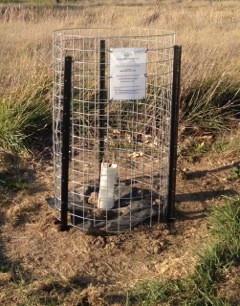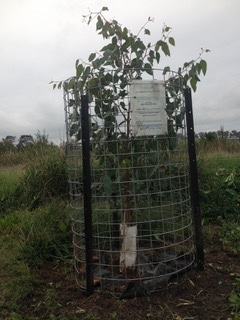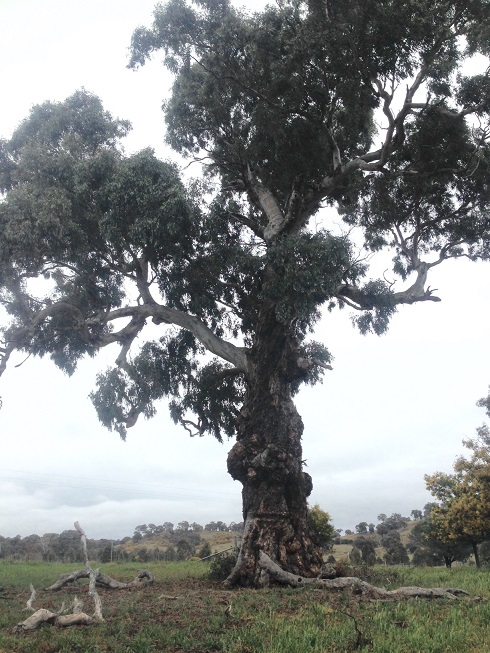


Yass Landcare has launched Round 6 (2025) of the popular Paddock Tree Project!
Yass Landcare Group is offering 1-50 trees and guards per property to re-establish paddock trees in the Yass Valley Local Government Area.
We invite interested landholders to submit an Expression of Interest (EOI) – trees and guards will be allocated on a ‘first come, first served’ basis, so we encourage early applications.
>> EXPRESSION OF INTEREST FORM
About the Yass Paddock Tree Project
Every year since 2019, Yass Landcare Group has offered subsidised paddock trees and stock-proof guards to landholders in the Yass Valley Local Government Area. Yass Landcare administers the grant on behalf of YAN for members within any of the Yass Area Network of Landcare Groups. Each year, the project has resulted in around 400 new, safely protected, paddock trees planted in the Yass Valley! This project is designed to improve health and connectivity in the landscape by planting the next generation of native trees. Scattered paddock trees (30m Apart) are an important part of the landscape and play a number of roles on a healthy and productive farm.
The project is supported by through various sources of funding. The 6th Round of the Paddock Tree Project, is supported by NSW Environment Trust which is providing funds to help expand the impact of their 10 year Yass Habitat Linkages Project which has been operated by YAN since 2016.
How to get involved - Round 6
Landholders are invited to submit an Expression of Interest (EOI) for Round 6, which closes on 20 July 2025.
>> EXPRESSION OF INTEREST FORM
To be eligible, applicants must:
- - Be a financial member of a Yass Area Network of Landcare Group
- - Agree to maintain 100% tree survival over 10 years, including replacing any trees that die
- - Commit to planting trees at least 30 metres apart, and at a safe distance from houses and powerlines
- - Ensure the project site is within the Yass Valley Local Government Area
- - Agree to pay the co-investment amount and provide necessary materials (see below)
Co-Investment Details
Participants are asked to contribute to the cost of the guards:
- - $25 per sheep-proof guard
- - $30 per cattle/horse-proof guard
You will also need to supply three steel posts per guard.
These are robust, high-quality guards, designed to withstand stock and wildlife. With proper care, they can be reused 4–5 times, making them a great long-term investment.
Learn more about the co-investment model here.
Team Effort: Tree Guard Team Up
Participants are also expected to take part in the Tree Guard Team Up – a community working bee where volunteers build and distribute the tree guards together.
Benefits for wildlife
Scattered paddock trees provide an important function for our wildlife including:
- Habitat hollows for many birds, mammals, such as micro bats, reptiles, frogs, insects and spiders;
- A stepping stone for animal movement between patches of native vegetation;
- Important fauna food sources like nectar, foliage and insects;
- Increasing species’ resilience to the changing climate.
About one third of agricultural land in the Australian temperate zone contains scattered paddock trees. Most of these trees are very old and there are often insufficient young trees growing to take their place. Even dead and unhealthy scattered paddock trees are important as they provide homes and shelter for wildlife. The big concern is that in 40 years all of these paddock trees could be gone.
Superb Parrots are one species that relies on paddock trees in our area. Check out the work our neighbouring Landcare groups have been doing to look after Superb Parrots:
Benefits for your farm
Connected, resilient environments lead to healthy and productive farms. Planting native trees and protecting natural areas and waterways can provide numerous production benefits, including: providing shade for stock, sheltering stock and soil from strong winds, improving water quality and encouraging native pollinators and species that provide natural insect control. Scattered paddock trees provide a range of benefits for productivity including:
- Pest control. Bats and birds that roost in trees can significantly reduce the number of insect pests;
- Stock and crops thrive better with shelter. Trees give protection from the wind and extreme temperatures;
- Salinity management. Trees can reduce waterlogging and dryland salinity problems;
- Improved soil structure. Wind and water erosion is reduced with remnant vegetation;
- Better quality soil. Soil fertility improves as leaf litter and animal droppings break down, bringing nutrients to pastures from deep soil beyond the reach of the pasture root zone;
- Natural regeneration. Mature trees provide the seeds to grow young trees and create the right conditions to grow native grasses and shrubs;
- Bee products. Valuable for apiary, honey, bees wax and pollination, although feral bees can exclude native fauna from tree hollows.
